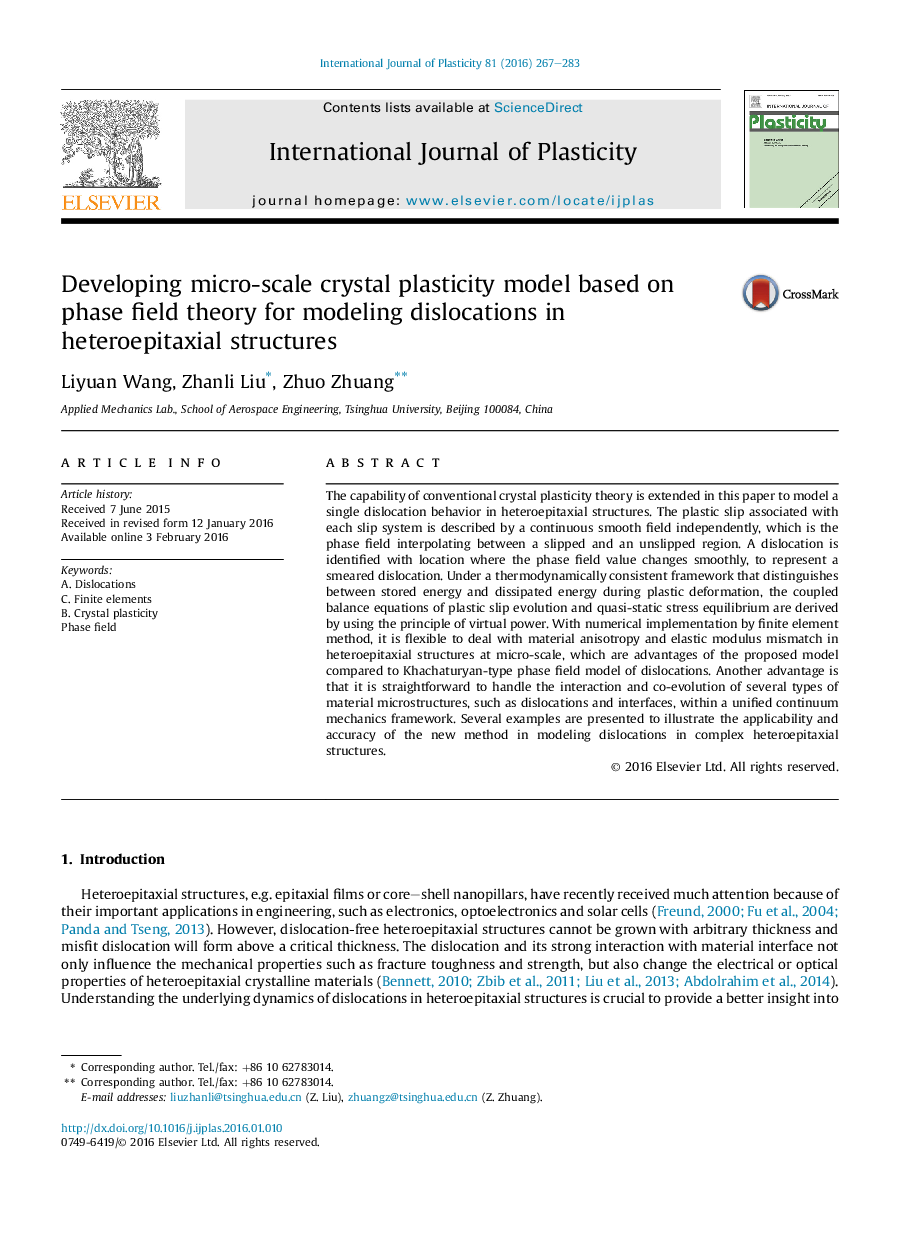| کد مقاله | کد نشریه | سال انتشار | مقاله انگلیسی | نسخه تمام متن |
|---|---|---|---|---|
| 784359 | 1465592 | 2016 | 17 صفحه PDF | دانلود رایگان |
عنوان انگلیسی مقاله ISI
Developing micro-scale crystal plasticity model based on phase field theory for modeling dislocations in heteroepitaxial structures
دانلود مقاله + سفارش ترجمه
دانلود مقاله ISI انگلیسی
رایگان برای ایرانیان
کلمات کلیدی
موضوعات مرتبط
مهندسی و علوم پایه
سایر رشته های مهندسی
مهندسی مکانیک
پیش نمایش صفحه اول مقاله

چکیده انگلیسی
The capability of conventional crystal plasticity theory is extended in this paper to model a single dislocation behavior in heteroepitaxial structures. The plastic slip associated with each slip system is described by a continuous smooth field independently, which is the phase field interpolating between a slipped and an unslipped region. A dislocation is identified with location where the phase field value changes smoothly, to represent a smeared dislocation. Under a thermodynamically consistent framework that distinguishes between stored energy and dissipated energy during plastic deformation, the coupled balance equations of plastic slip evolution and quasi-static stress equilibrium are derived by using the principle of virtual power. With numerical implementation by finite element method, it is flexible to deal with material anisotropy and elastic modulus mismatch in heteroepitaxial structures at micro-scale, which are advantages of the proposed model compared to Khachaturyan-type phase field model of dislocations. Another advantage is that it is straightforward to handle the interaction and co-evolution of several types of material microstructures, such as dislocations and interfaces, within a unified continuum mechanics framework. Several examples are presented to illustrate the applicability and accuracy of the new method in modeling dislocations in complex heteroepitaxial structures.
ناشر
Database: Elsevier - ScienceDirect (ساینس دایرکت)
Journal: International Journal of Plasticity - Volume 81, June 2016, Pages 267-283
Journal: International Journal of Plasticity - Volume 81, June 2016, Pages 267-283
نویسندگان
Liyuan Wang, Zhanli Liu, Zhuo Zhuang,